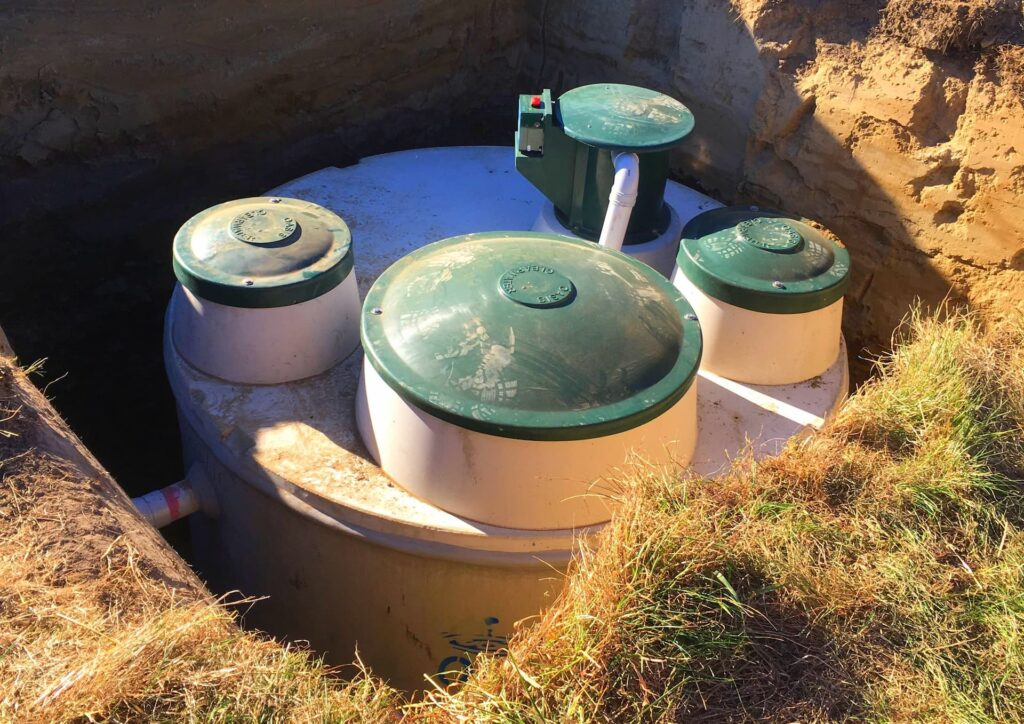Christchurch, a city nestled in the Canterbury region of New Zealand, has faced its share of challenges, particularly regarding water management. With a growing population and a changing climate, ensuring a sustainable water supply has become paramount.
One often overlooked solution lies beneath the surface; septic tanks. This article explores the critical role of septic tanks in Christchurch, exploring how they contribute to water conservation, environmental protection, and overall sustainability.
Understanding Septic Tanks
A septic tank is a natural wastewater treatment system that is commonly used in areas where a municipal sewer system is unavailable. It consists of a large underground tank that separates solids from liquids.
The solids settle at the bottom, forming sludge, while the liquids flow into a drain field, where they are further filtered by the soil.
While traditional septic tanks have been used for decades, advancements in technology have led to the development of more efficient and environmentally friendly options.
For example, aerobic and anaerobic septic systems utilise biological processes to break down organic matter more effectively, reducing the need for frequent pumping and minimising the risk of groundwater contamination.
Septic Tanks and Water Sustainability in Christchurch
Christchurch has a history of water shortages, particularly during dry summers. The city’s reliance on municipal water supplies has made it vulnerable to drought conditions.
Septic tanks offer a sustainable alternative by reducing the demand for potable water. By treating wastewater on-site, septic tanks help to conserve water resources, ensuring that they are available for essential uses such as drinking, cooking, and sanitation.
Moreover, septic tanks play a vital role in protecting groundwater quality. Improperly maintained septic systems can lead to the release of pollutants into the soil, contaminating groundwater sources. By adhering to proper maintenance practices and regulations, septic tank owners can help to safeguard the city’s precious groundwater resources.
Septic Tank Maintenance and Regulations
Regular maintenance is essential for the proper functioning of a septic tank. This includes:
- Inspections: Periodic inspections help to identify potential problems and ensure that the system is operating efficiently.
- Pumping: Sludge buildup can reduce the effectiveness of a septic tank. Regular pumping is necessary to maintain optimal performance.
- Effluent testing: Testing the quality of the effluent discharged from the septic tank is important to ensure compliance with local regulations.
Christchurch has specific regulations in place to govern the use and maintenance of septic tanks. These regulations may include requirements for licensing, inspections, and effluent quality standards. Adherence to these regulations is crucial for protecting public health and the environment.

Successful Septic Tank Implementation in Christchurch
Numerous examples demonstrate the positive impact of septic tanks on water sustainability in Christchurch.
In rural areas, where municipal sewer systems are unavailable, septic tanks have been a reliable solution for wastewater treatment. Residential developments have also adopted septic tanks as a sustainable alternative to connecting to the city’s sewer network.
One notable case study is the implementation of septic tanks in a new subdivision in Christchurch.
By requiring all homes to have septic systems, the developers were able to reduce the strain on the city’s wastewater infrastructure and promote sustainable water use practices.
The Potential of Septic Tanks in Christchurch
As technology continues to advance, there is great potential for further innovations in septic tank design and operation.
Advanced treatment systems, such as membrane bioreactors, offer even greater efficiency and environmental benefits.
Additionally, the development of smart septic tank monitoring systems can help to optimise maintenance and prevent failures.
In the future, septic tanks are likely to play an even more significant role in Christchurch’s water sustainability efforts.
By investing in research and development, and by promoting the adoption of sustainable septic tank practices, the city can ensure a reliable and resilient water supply for generations to come.
Septic tanks are a valuable asset in Christchurch’s quest for ultimate water sustainability. By reducing reliance on municipal wastewater systems, protecting groundwater quality, and promoting sustainable water use practices, septic tanks contribute to a healthier environment and a more resilient community.
As the city continues to grow and face new challenges, the importance of septic tanks will only increase. By embracing this technology and investing in its development, Christchurch can secure a sustainable future for its residents and the environment.